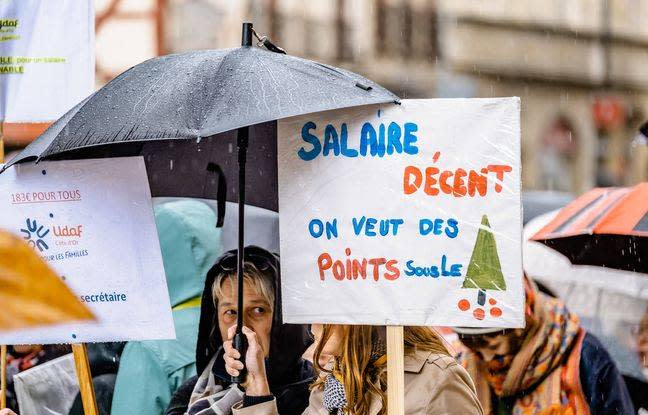B.Before I emigrated from Ireland to teach in England in 2006, I thought that the British would know as much about me as I do about them. I was just moved to a staff room in East London after a year when a colleague teased me: ‘Why the Jen salad? I thought the Irish loved potatoes.
Contrary to the cliché, the Irish don’t just like potatoes. Pushed to a barren land in western Ireland, famously under the leadership of Oliver Cromwell, the peasants had been encouraged by their British colonists to plant the ill-fated crops. But when the plague came, little was done to help them. The result Great hunger resulted in the death or emigration of 2 million people between 1845 and 1852, more than a quarter of the Irish population.
I don’t find potato jokes funny – governments rarely turn their backs on their people in times of crisis – but I’ve heard dozens of similar gags in my 12 years in English and in international British schools. They were never evil, they just came from a place of absolute ignorance. While exchanging views with colleagues from the history departments, I quickly realized: while Irish students may be learning too much about the colonization of Ireland, British students are certainly learning too little.
In every Irish class, children are raised with stories of oppression and rebellion. Each child will understand the intricacies of Anglo-Irish relations. As a secondary English teacher, I have no choice but to write plays, novels and poetry dealing with our complicated relationship with Britain. Irish students leave school with the historical and emotional burden of colonization on their shoulders.
Contrast this with Britain, where English lessons rightly include texts focusing on class, misogyny and injustice, often set around World War II, but rarely related to Britain’s relations with Ireland, despite the literary importance and proximity to Ireland.
In 2016 my school started a project on the British Empire. The Irish media were captivated by the centenary of the 1916 Easter Rising historical turning point in the fight against British rule. I naively offered our history director a book on the subject – it was back on my desk the next morning. I should have known him better.
When I was studying Othello in the high school English course, we discussed race. I asked my brilliant and wonderful students if whites could experience ethnic prejudice as seen in comedy. No, they said. “What about the way Britain treats the Irish?” I asked. They looked at me blankly – of course they did. In response, I told them about the infamous signs my grandfather had seen when he lived in London in the 1950s: “No blacks, no Irish, no dogs.”
This failure of British schools to teach students about Ireland has far-reaching consequences. For one, if educated Brits don’t understand the difference between Ireland and the UK, they won’t be able to understand Brexit. Take Conservative MP Andrew Bridgen, who confidently stated in 2018 that the British had one Right to an Irish passport due to the common travel area. Or what about Boris Johnson, who, when concerns were raised about the possibility of a hard border, brushed aside fears when “pure millennium bug stuff‘and then as’ madness’. Try to use this word for all families and communities affected by decades of devastating violence and loss.
Even now, as Ireland and the UK continue to grapple with highly sensitive post-Brexit trade deals, that knowledge is important. In June, Liz Truss, then foreign minister and probably the next British prime minister, summed up what she did with a straight face. she pronounced Taoiseach as “tea sock”. In thorny negotiations given the historic British policy Eradication of the Irish language In Ireland it is of paramount importance that elected politicians use at least Irish proper names. When Queen Elizabeth spoke a few words in Irish at a state dinner at Dublin Castle, the former British seat of power in Ireland, she did something very significant. She showed her respect for the Irish people and culture. Politicians need to draw inspiration from their beloved monarch who recently passed away in this regard.
While the British are taught not to know – not to care – about the history of Ireland, the Irish carry the pain with them. Every political misstep, every time an Irish celebrity is involved misidentified as British, any confusion between Britain, Ireland and the UK – every time it happens, gets corrected and happens again – brings our relationship back. It makes the Irish feel that their nationality, their distinct cultural difference, is too insignificant a detail to be known. Yes, it’s time to move on, but it takes respect and knowledge from both sides.
Jennifer Horgan is a secondary school teacher, Irish Examiner columnist and author of O Captain, My Captain: One Teacher’s Hope for Change in the Irish Education System
Do you have an opinion on the issues raised in this article? If you want to send a letter of up to 300 words for publication, please send it to [email protected]
–


